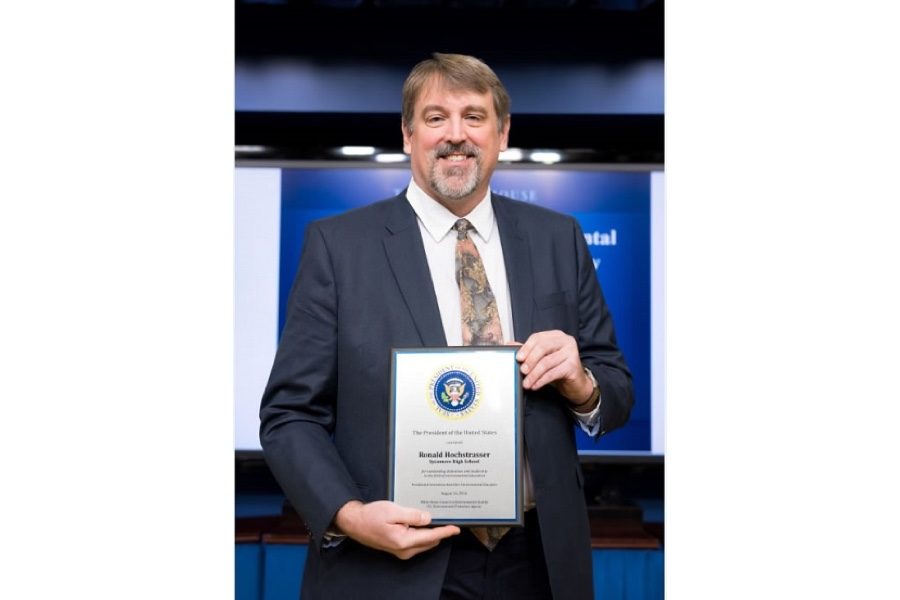Hochstrasser wins national award
August 22, 2016
Every year, the White House Council on Environmental Quality (CEQ) partners with the U.S. Environmental Protection Agency (EPA) recognizes the national winners of the Presidential Innovation Award for Environmental Educators (PIAEE).
According to the EPA, this award honors educators from kindergarten to grade 12 who incorporate “innovative approaches to environmental education and use the environment as a context for learning for their students.”
As many as two teachers from each of the EPA’s 10 regions and from different states can receive this award. This year, Mr. Ronald Hochstrasser was one of these teachers.
Hochstrasser has taught for nearly 30 years. He created a space where his students can increase their awareness of nature. Together, he and his students have constructed various gardens with different functions.
According to the EPA, “one garden sequesters and filters water from the school parking lot, another provides a milkweed habitat for butterflies, and another provides fresh herbs for school meals.”
Many of Hochstrasser’s projects with his students involve the trees planted in the community. These include using forestry tools to measure trees and developing personal field guides for local species.
Hochstrasser has also developed a simulated stream to allow his students to investigate stream health and develop a pollution profile by collecting data on water quality and macroinvertebrates.
He has also increased the extracurricular opportunities for students, parents, and community members to immerse themselves in nature.
Examples include birdseed sales through the Environmental Club, constructing rain gardens, monitoring local water quality, and assisting with the removal of invasive species from parks (through partnership with the Ohio River Foundation).
According to the EPA, Hochstrasser is currently working on integrating “broader subject matter, additional grade levels, more diverse learners, and more expansive geographies to develop rain gardens and advance environmental stewardship education.”
